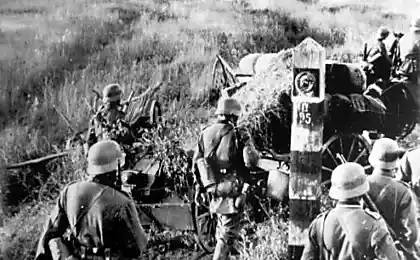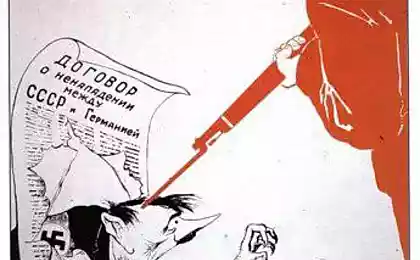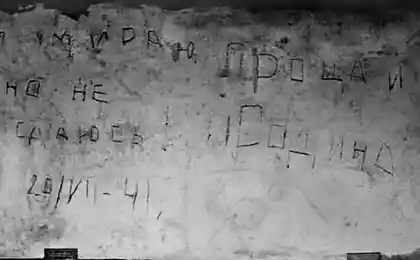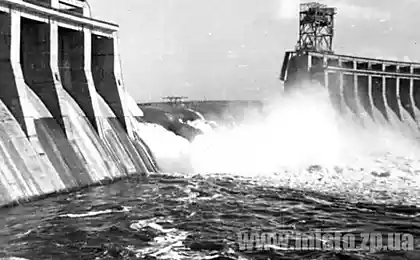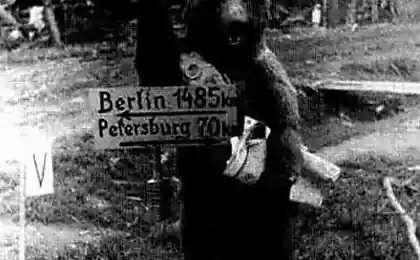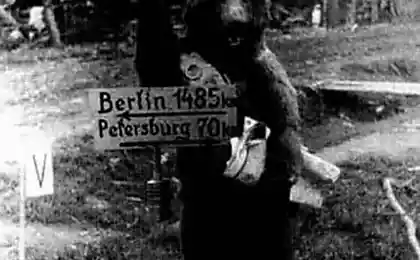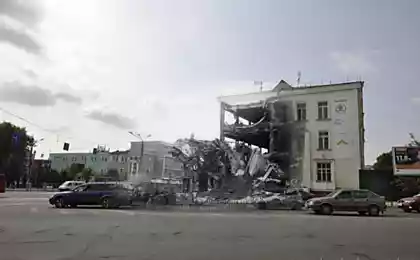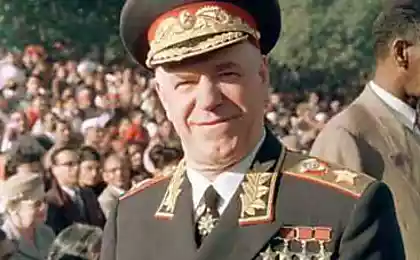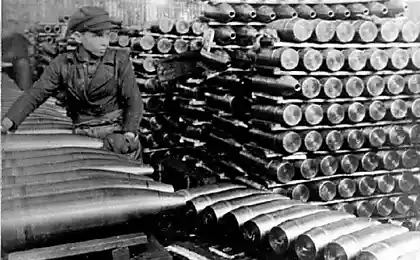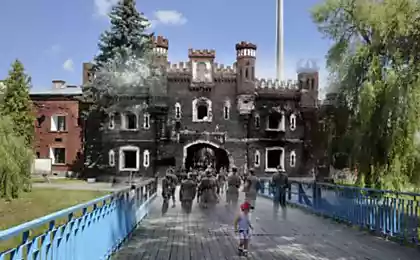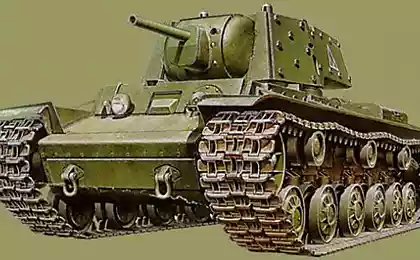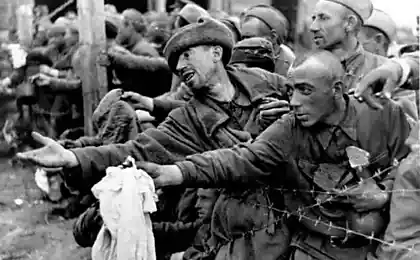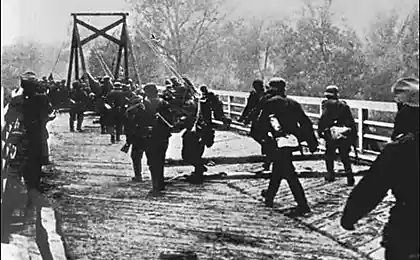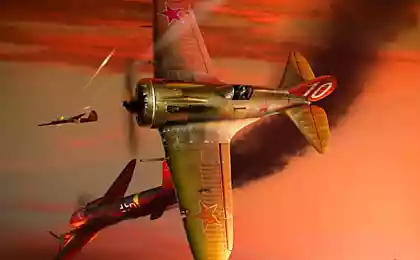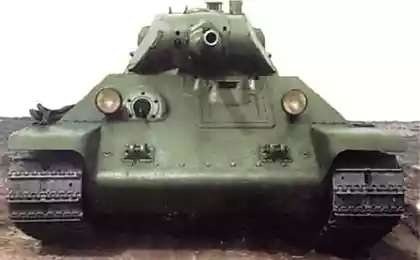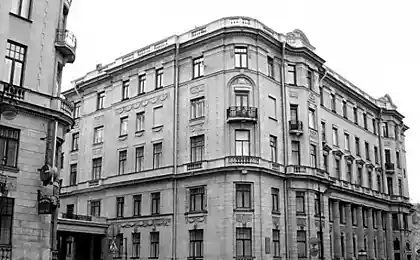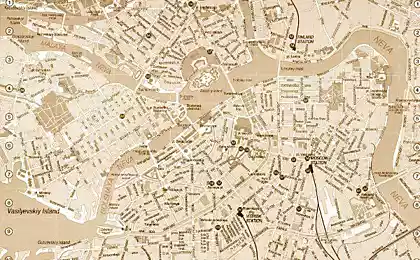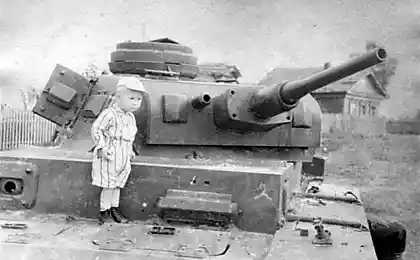869
Their names are not known, exploits should not be forgotten.
In Germany, there was one such person Winzer Bruno. He served in the armies of the three Germany, the Reichswehr of the Weimar Republic, Hitler's Wehrmacht, was one of the first modern Bundeswehr soldiers. Leaving memories of his service in the form of a book, "Soldier of three armies." And this is how he describes his first fighting in the territory of the USSR.
"The problem we have completed the first day, though only on the third day, in the second half. The task for which the war was launched, proved elusive.
No sooner had my company take a few hundred meters, she was detained. The road, on which the company had to move, led through the forest area. Soviet border guards who bore service on watchtowers, built for themselves shelters conveniently located in the bunkers. The head of the first platoon under the command of Lt. Steinberg one gun and one machine gun came under intense rifle and machine gun fire, which met him out of hiding. The lieutenant ordered the other gun crew to dismount and try to circumvent the firing point, while the head gun taken under fire guards. But wherever Steinberg nor sent their part, it is everywhere came up against vigorous resistance. It seemed that Russian focused in the forest company, if not the whole battalion. Apparently our intelligence profoundly miscalculated.
Then I ordered to dismount the 2nd platoon and move to the right through the woods in a wide arc, while the third platoon made its way through the trees to the left to attack the enemy from the rear. Such a purely infantry tactics are not once used by us in the teachings of anti parts. It was a success, and this time, but the attack lasted more than four hours. Meanwhile, the road on which the troops were moving, were blocked. Behind us accumulated machine regimental headquarters and two other anti-tank company commander, Battalion and artillery unit.
We have been losing.
Lt. Steinberg was wounded and two were killed by machine-gunner. He took command of a platoon squad leader Ballershtedt - staff sergeant major from Mecklenburg.
Once again resumed firing: Soviet border guards firing from all barrels, then silence. Undoubtedly, both the platoon bypassed enemy and forced him to stop resisting. Slowly, from cover to cover, we approached the wood and earthworks. But what we saw there, we were strongly impressed. Hopper was not fortified structure and only a primitive shelter, hewn out of the lungs tree trunks, which was sprinkled on the ground; in the shelter just enough room for eight shooters.
Around the huts were scattered hiking jars, kitchen utensils and a lot of empty cartridges. Behind a small earthworks were three dead Soviet soldiers.
The machine gun, from which they were shot, disappeared. Their comrades took him with them when they ran out of ammunition. Consequently, we did not fight against the battalion, and not against the company, or even against a full platoon. A small group of border guards arrested us for four hours, forced us to turn around and marching behind us to take a fighting stance battery, caused us a loss and then disappeared. The same situation is repeated many times during the first day of the campaign. And each time it turned out that it was only a few Red Army soldiers who entered the extremely skillfully selected positions and forced us to take the fight.
On the third day, when the head of the column was the 2nd platoon, we came under intense machine-gun fire from the flank. It was impossible to drive on the road. Two non-commissioned officer and three soldiers were already dead between machines. We hid in ditches and cars with binoculars and inspected the area. Finally we found a machine gun behind a haystack. Four guns and eight guns opened fire. There were clearly visible tears. But the Soviet machine-gun fire continued. We were delayed by almost two hours. Again behind us we stood waiting for the other major units of the division. Finally, the commander of the 2nd company estimates put the two guns on motorcycles, so they drove the lane and went around enemy. Suddenly, we saw one of the soldiers ran from the stack, picked up the gun. Everyone raised their rifles and stood, began to shoot at the fugitive, but he still managed to reach the woods and hide. A single soldier for two hours paralyzed the action of a large part of the division; After all, any stack of dead were found. It turned out to be just empty shells and a duffel bag. He threw the bag, but the gun ».
One unknown Soviet fighter, two hours up the German division. And he retreated only when he ran out of ammunition. Pick up weapons. Eternal memory to the unknown hero to do everything to win. German protivotankisty 8th separate heavy division.
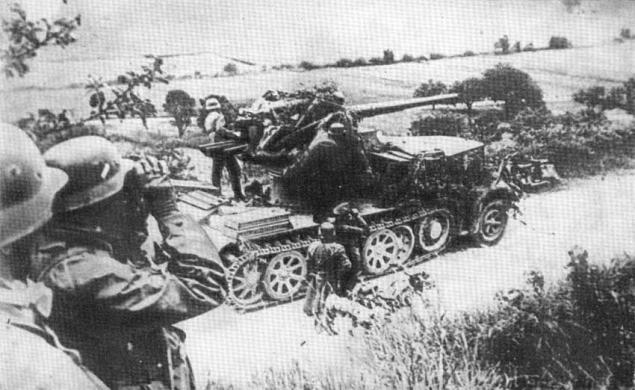
Soviet border guards on patrol. Photo is interesting in that it was made for the newspaper in one of the outposts on the western border of the USSR June 20, 1941, ie two days before the war. Time taken: 20.06.1941
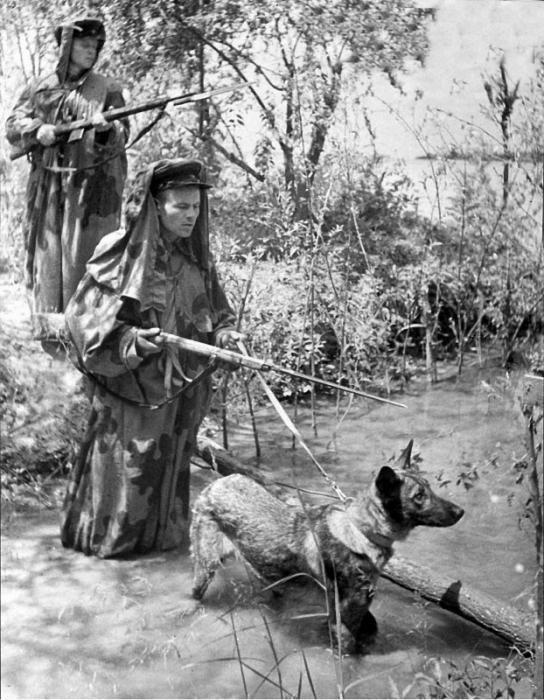
The first day of the war in Przemysl (now - the Polish city of Przemysl) and the first dead invaders on Soviet soil (the soldiers of the 101st Division legkopehotnoy). The city was occupied by German troops on June 22, but the next morning was liberated by the Red Army and border guards and held until 27 June. Time taken: 22.06.1941
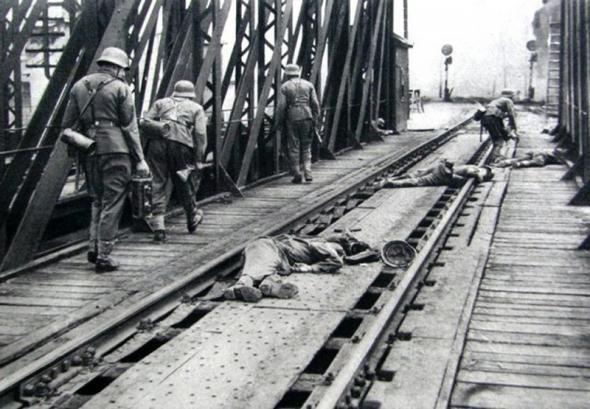
Source:
"The problem we have completed the first day, though only on the third day, in the second half. The task for which the war was launched, proved elusive.
No sooner had my company take a few hundred meters, she was detained. The road, on which the company had to move, led through the forest area. Soviet border guards who bore service on watchtowers, built for themselves shelters conveniently located in the bunkers. The head of the first platoon under the command of Lt. Steinberg one gun and one machine gun came under intense rifle and machine gun fire, which met him out of hiding. The lieutenant ordered the other gun crew to dismount and try to circumvent the firing point, while the head gun taken under fire guards. But wherever Steinberg nor sent their part, it is everywhere came up against vigorous resistance. It seemed that Russian focused in the forest company, if not the whole battalion. Apparently our intelligence profoundly miscalculated.
Then I ordered to dismount the 2nd platoon and move to the right through the woods in a wide arc, while the third platoon made its way through the trees to the left to attack the enemy from the rear. Such a purely infantry tactics are not once used by us in the teachings of anti parts. It was a success, and this time, but the attack lasted more than four hours. Meanwhile, the road on which the troops were moving, were blocked. Behind us accumulated machine regimental headquarters and two other anti-tank company commander, Battalion and artillery unit.
We have been losing.
Lt. Steinberg was wounded and two were killed by machine-gunner. He took command of a platoon squad leader Ballershtedt - staff sergeant major from Mecklenburg.
Once again resumed firing: Soviet border guards firing from all barrels, then silence. Undoubtedly, both the platoon bypassed enemy and forced him to stop resisting. Slowly, from cover to cover, we approached the wood and earthworks. But what we saw there, we were strongly impressed. Hopper was not fortified structure and only a primitive shelter, hewn out of the lungs tree trunks, which was sprinkled on the ground; in the shelter just enough room for eight shooters.
Around the huts were scattered hiking jars, kitchen utensils and a lot of empty cartridges. Behind a small earthworks were three dead Soviet soldiers.
The machine gun, from which they were shot, disappeared. Their comrades took him with them when they ran out of ammunition. Consequently, we did not fight against the battalion, and not against the company, or even against a full platoon. A small group of border guards arrested us for four hours, forced us to turn around and marching behind us to take a fighting stance battery, caused us a loss and then disappeared. The same situation is repeated many times during the first day of the campaign. And each time it turned out that it was only a few Red Army soldiers who entered the extremely skillfully selected positions and forced us to take the fight.
On the third day, when the head of the column was the 2nd platoon, we came under intense machine-gun fire from the flank. It was impossible to drive on the road. Two non-commissioned officer and three soldiers were already dead between machines. We hid in ditches and cars with binoculars and inspected the area. Finally we found a machine gun behind a haystack. Four guns and eight guns opened fire. There were clearly visible tears. But the Soviet machine-gun fire continued. We were delayed by almost two hours. Again behind us we stood waiting for the other major units of the division. Finally, the commander of the 2nd company estimates put the two guns on motorcycles, so they drove the lane and went around enemy. Suddenly, we saw one of the soldiers ran from the stack, picked up the gun. Everyone raised their rifles and stood, began to shoot at the fugitive, but he still managed to reach the woods and hide. A single soldier for two hours paralyzed the action of a large part of the division; After all, any stack of dead were found. It turned out to be just empty shells and a duffel bag. He threw the bag, but the gun ».
One unknown Soviet fighter, two hours up the German division. And he retreated only when he ran out of ammunition. Pick up weapons. Eternal memory to the unknown hero to do everything to win. German protivotankisty 8th separate heavy division.

Soviet border guards on patrol. Photo is interesting in that it was made for the newspaper in one of the outposts on the western border of the USSR June 20, 1941, ie two days before the war. Time taken: 20.06.1941

The first day of the war in Przemysl (now - the Polish city of Przemysl) and the first dead invaders on Soviet soil (the soldiers of the 101st Division legkopehotnoy). The city was occupied by German troops on June 22, but the next morning was liberated by the Red Army and border guards and held until 27 June. Time taken: 22.06.1941

Source:
Big Ussuri Island after the flood
Lithuanian journalists dispel the myth of the chaos in Sochi: here glamor and shine
